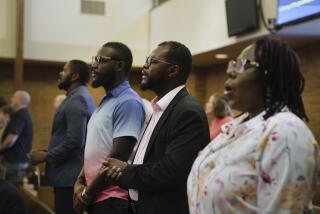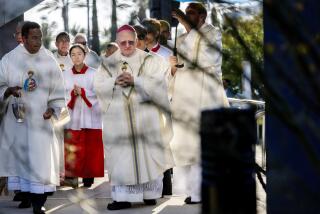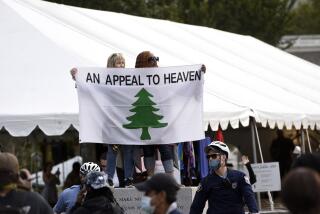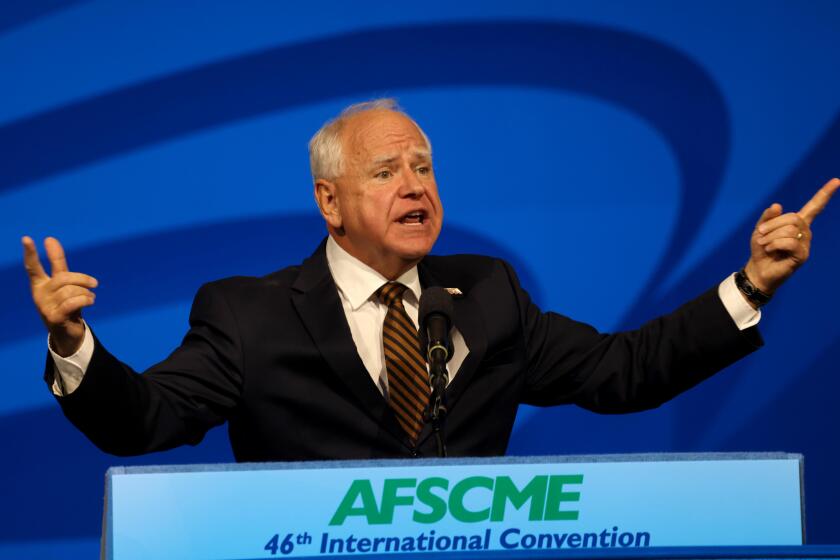Op-Ed: They’re praying for the worst. Is that wrong?
Portugal’s soccer superstar Cristiano Ronaldo is suffering from tendinitis in his knee, which kept him out of a recent match against Greece. And a Ghanaian traditional priest named Nana Kwaku Bonsam has claimed credit for the injury.
Bonsam recently announced on Ghanaian radio that for four months he had been “working on” Ronaldo, in hopes of sidelining the world’s top soccer player before Ghana and Portugal met in the World Cup. “They can never see what is causing the injury, because it is spiritual,” he said.
Isn’t it against the rules of religion to pray against a person?
Hardly. Negative prayer is actually quite common. And praying for harm to befall another — called “imprecatory prayer” — is by no means the exclusive domain of tribal religions in the developing world. Some American evangelicals also have participated in high-profile prayer campaigns aimed at bringing adversity to others.
For the last five years, for example, one such campaign has urged Americans to “Pray for Obama: Psalm 109.8.” People who see the slogan on bumper stickers and T-shirts may not realize that Psalm 109.8 is a negative prayer that reads, “May his days be few; may another take his office.” The next line is chilling: “May his children be fatherless, and his wife a widow.”
It is unclear who started the prayer campaign, but a scandal broke in 2012 with the leaking of an email from Kansas House Speaker Mike O’Neal. O’Neal sent the Psalm citation to fellow House members, saying: “At last — I can honestly voice a Biblical prayer for our president! Look it up — it is word for word! Let us all bow our heads and pray.”
The Secret Service has taken note of the threat inherent in the prayer campaign. But without direct evidence that people were actually advocating acts of violence, the ACLU and the Anti-Defamation League have concluded that the campaign to “Pray for Obama: Psalm 109.8” is a legal form of political speech.
In a way, though, that conclusion relies on secular logic. The ACLU and the ADL assume prayer to be ineffectual in causing harm. But many evangelicals believe negative forms of prayer can actually be efficacious weapons. This is why they use the term “spiritual warfare,” and why they think it is best left to the experienced “prayer warrior.”
Believers act as intercessors to “pray down” the forces of “the enemy,” who is always the devil. The material targets of “warfare prayer” include meth labs, abortion clinics, strip clubs and other places of “spiritual wickedness.” If such places are closed down or busted by law enforcement, then the warriors claim credit.
Negative prayer also “works” in the worldview of many in Haiti, where I research what I call “aggressive prayer” in both the evangelical and vodou sectors. Many people in Haiti consider incidents of sickness, layoffs, theft, accidents and death to be the result of a spiritual attack. But it is hard to find traditional priests who are willing to claim credit for these negative tactics. The vast majority of priests say they work defensively to counter imagined attacks by unknown spiritual assailants.
Nana Kwaku Bonsam is unusual in his brazen announcement that he prayed against Ronaldo. Western media have described him as a traditionalist who embraces media and technology to present his religion with a modern, globalized face and to demonstrate its relevance to this generation’s youth.
It’s easy to dismiss the Ghanaian priest’s claims as a bid for publicity combined with sheer coincidence. But don’t many Americans believe in the power of positive prayer and positive thought? And in cases of winning and losing, isn’t positive prayer for one side the equivalent of negative prayer for another?
It would seem that both the sports world and the religious establishment understand this principle.
Recently, in a Spanish newspaper, the pope himself, who is Argentine, promised not to pray for Argentina in the World Cup.
Elizabeth McAlister is a professor of religion at Wesleyan University.
More to Read
A cure for the common opinion
Get thought-provoking perspectives with our weekly newsletter.
You may occasionally receive promotional content from the Los Angeles Times.










